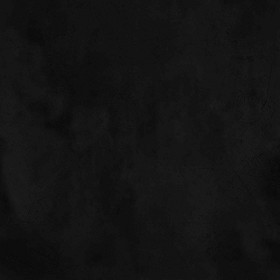For many generations, the image of Smokey Bear, that friendly yet serious bear, has stood as a powerful symbol of wildfire prevention. His familiar presence, seen in countless public service announcements and educational materials, has shaped how people think about protecting forests. It is that distinctive character, with his clear and important message, that really sticks with you, and a big part of his lasting impact comes from how he sounds.
You see, the name "Smokey" itself, as in Smokey Bear, is a proper noun, a specific label for a particular, well-known figure. This is different from the word "smoky," which describes something that smells or looks like it has smoke around it, like a campfire after it has died down. This little spelling difference, actually, helps us understand a bit more about the iconic bear and his place in our cultural landscape.
So, when we consider such a beloved figure, it is almost natural to think about the voice that brings him to life. The sound of Smokey Bear has been a constant for many years, helping to deliver his vital warning. It is that consistent sound, really, that helps people connect with the message, making it feel personal and urgent, no matter how old they are.
- Openai Chatgpt Subscription Availability Iran
- Pathivara Temple Trek Details
- Jenny Lux Bio
- Openai Chatgpt Plus Subscription Payment Iran
- Asx1coм
Table of Contents
- What's in a Name - Smokey Bear's Unique Spelling?
- Why Does Smokey Bear Have an 'E'?
- The Distinction - 'Smoky' vs. 'Smokey' in Writing for the Smokey Bear Voice Actor Context
- The Iconic Sound - Who is the Smokey Bear Voice Actor?
- How Does a Voice Shape the Smokey Bear Message?
- The Enduring Legacy of Smokey Bear
- What Makes the Smokey Bear Voice Actor so Memorable?
- The Future of the Smokey Bear Voice Actor and His Message
What's in a Name - Smokey Bear's Unique Spelling?
There is, actually, a common little mix-up when it comes to the name of our forest friend. Many people wonder about the way "Smokey" is spelled for the bear, with that extra 'e' at the end. You see, the word "Smokey" with the 'e' is typically used as a proper noun, a specific name given to someone or something. Think about William "Smokey" Robinson Jr., the famous singer and songwriter; his stage name, "Smokey," ends with that 'e'. It is a personal identifier, very much like a first name.
In contrast, the word "smoky," without the 'e', acts as an adjective. This means it is a descriptive word, telling us more about a noun. It describes something that is filled with smoke or gives off a smell like smoke. For instance, you might talk about a smoky flavor in some food, or you might describe the Smoky Mountains, which get their name from the misty, hazy look that often hangs over them. That word, without the 'e', is what you would use to talk about something resembling or having the qualities of smoke, you know, in a general sense.
Until a while ago, "smokey" was, in some ways, an accepted spelling for the adjective form, too. However, the accepted way of writing it for describing something with smoke has really settled on "smoky" without the 'e'. This distinction helps keep things clear in writing, making sure readers understand whether you are talking about a specific character or a general quality. So, when you see "Smokey Bear," that 'e' is there for a reason, telling you it is his given name, like a person's first name, which is pretty neat.
- Sophierain Erome
- Gloria Torres Of Leaked
- Are Christopher Reeves And George Reeves Related
- Teach Me First Manhwa
- Aisha Sofet Naked
Why Does Smokey Bear Have an 'E'?
The reason Smokey Bear's name includes that extra 'e' is, quite simply, because it is his proper name, a specific label given to him. It works just like a person's first name, or a specific title. This makes him a unique individual, not just any bear that happens to be smoky. When you see "Smokey" with the 'e', you are referring directly to the advertising mascot for the U.S. Forest Service, the one with the shovel and the message about preventing wildfires. It is a distinct identifier, setting him apart from other things that might just be, well, smoky.
The standard word for describing something that has smoke or smells of smoke is "smoky," spelled without the 'e'. This is the form you would use when you are talking about, say, a smoky barbeque or the lingering scent of a bonfire. It is a descriptive term, a way to paint a picture with words about a quality something possesses. So, the 'e' in Smokey Bear's name is a deliberate choice, helping to make him a proper character with a proper name, which is, in a way, very important for his identity.
It is, in some respects, a bit like how we name our pets or even our cars; we give them specific names that might not follow the general rules for describing things. Smokey Bear, as a cultural icon, has earned that proper name spelling. This distinction helps us recognize him immediately and understand that he is a specific entity, not just a general descriptor. It is a subtle yet significant detail that helps define his unique place in public awareness, and that is quite interesting, you know.
The Distinction - 'Smoky' vs. 'Smokey' in Writing for the Smokey Bear Voice Actor Context
When you are writing, knowing the difference between "smoky" and "Smokey" really helps keep your message clear. "Smoky" without the 'e' is the adjective, the word you use to describe things that are filled with or resemble smoke. For example, you might mention a smoky flavor in a particular kind of cheese, or perhaps the Smoky Mountains, known for their hazy appearance. This form is what you should use when you want to talk about a quality or characteristic that something possesses, like how a room might get smoky after a fire, you know.
Now, when it comes to "Smokey" with the 'e', remember that this is almost always a proper noun, a specific name. This is why Smokey Bear, the famous mascot, has the 'e' in his name. It is like his given name, making him unique. A simple way to remember this is that if you are referring to the specific bear, the one who tells us to prevent wildfires, then it is "Smokey" with the 'e'. If you are describing a general smoky condition or smell, then it is "smoky" without the 'e'. This little trick can really help you decide which spelling to use in your writing, especially when discussing things related to the beloved bear or even the smokey bear voice actor.
So, to help you make the right choice, you could think of it like this: if you can replace the word with "hazy" or "sooty," then "smoky" without the 'e' is probably the correct choice. If you are talking about a specific character, like the bear, or a person named "Smokey," then the 'e' belongs there. This guide, with its definitions and examples, should help you sort out whether to use "smokey" versus "smoky" in your writing, making your English language skills just a little bit sharper. It is a small detail, but it can make a big difference in how your words are received, and that is pretty important, actually.
The Iconic Sound - Who is the Smokey Bear Voice Actor?
For decades, Smokey Bear's message has resonated across the country, teaching generations about fire safety. A significant part of that lasting impact comes from his voice. That voice, which delivers the familiar and important phrase, "Only You Can Prevent Wildfires," needs to be just right. It needs to convey wisdom, a bit of sternness, and yet also a warm, caring tone. The person who lends their voice to such an enduring symbol holds a special place in the hearts of many, even if their name is not always widely known. The curiosity about who truly is the smokey bear voice actor is, therefore, very natural.
The consistent sound of Smokey Bear is incredibly important for his recognition. Imagine if his voice changed dramatically every few years; it might lessen the immediate connection people feel with him. A steady, recognizable vocal presence helps to build trust and familiarity, making his warnings feel more personal and sincere. This consistency helps to keep the message strong, no matter the time period or the specific public service announcement. It is, in a way, a quiet cornerstone of his enduring appeal, you know.
While the exact details of every individual who has provided the voice for Smokey Bear throughout his long history are not always at the forefront of public discussion, the role itself is a vital one. The voice actor, whoever they may be at any given time, becomes the auditory embodiment of a national campaign. They are the ones who give life to the bear's words, ensuring his crucial message reaches new ears with the same weight and sincerity it has always carried. It is, basically, a job with a lot of responsibility, and a quiet kind of fame, in some respects.
How Does a Voice Shape the Smokey Bear Message?
The voice behind Smokey Bear does so much more than just speak words; it shapes the entire message he delivers. Think about it: a voice for Smokey Bear needs to possess a certain blend of characteristics. It needs to sound calm, so as not to cause panic, but also carry a clear note of authority, making his warnings feel truly serious. At the same time, it needs a friendly, approachable quality, so children and adults alike feel they can trust him. A touch of wisdom in the tone, too, helps convey the long history and importance of his advice, which is, in a way, very clever.
The way the smokey bear voice actor delivers the "Only You Can Prevent Wildfires" message is absolutely key to its effectiveness. It is not just about the words themselves, but how they are spoken. A measured pace, a slight emphasis on certain words, and a tone that suggests both concern and capability all contribute to the message landing with impact. This vocal performance helps to make the message memorable and actionable, rather than just a simple slogan. It is, essentially, a masterclass in conveying a powerful public safety message through character. That is pretty cool, actually.
For many years, this familiar sound has helped to create a deep connection with generations of people. Children who grew up hearing Smokey's voice now share that message with their own children, and the consistent vocal presence helps bridge those gaps in time. The voice becomes a comforting, yet firm, reminder of a shared responsibility. It is a testament to the power of sound in public education, demonstrating how a well-chosen voice can make a lasting impression and keep an important cause alive for decades, which is, you know, quite remarkable.
The Enduring Legacy of Smokey Bear
Smokey Bear is, quite frankly, more than just an advertising mascot; he is a true cultural icon in America. For over 75 years, his image and his message have been a constant presence, reminding everyone about the importance of preventing wildfires. He is a symbol of environmental care and public safety, recognized by people of all ages across the country. His enduring presence in public service announcements, school programs, and even at community events, like the annual parade coming to Westerly, Charlestown, shows just how deeply he has become a part of our shared experience. He is, very simply, a household name, and that is a big deal.
The fact that Smokey Bear continues to be relevant, even in today's quickly changing world, speaks volumes about the effectiveness of his campaign. His simple, direct message remains as vital as ever, perhaps even more so with the increasing threat of wildfires. He is a constant reminder that individual actions have a significant impact on the health of our forests and natural spaces. This longevity is, in some respects, a rare feat for any public figure, especially one created for a specific purpose. It just goes to show how powerful a clear message, consistently delivered, can be.
His story, from a real bear cub rescued from a fire to a national symbol, has resonated deeply with people. This emotional connection, combined with his consistent presence and clear guidance, has cemented his place in American folklore. He is a gentle giant, a wise guardian, and a friendly teacher all rolled into one, and his ongoing appearances, whether in new materials or in local events, ensure that his important work continues. It is, basically, a legacy built on trust and a very clear purpose, and that is something to appreciate, you know.
What Makes the Smokey Bear Voice Actor so Memorable?
The memorability of the smokey bear voice actor really comes down to the way the voice shapes the character's persona. It is not just about a sound; it is about how that sound makes Smokey Bear feel real and relatable. The voice needs to embody a certain gravitas, a sense of experience, without being too stern or frightening. It has to convey the seriousness of wildfire prevention while also being approachable enough to connect with young children. This balance is a subtle art, and when it is done well, it makes the character truly unforgettable, which is pretty amazing, actually.
Think about the delicate skill involved in delivering a message through an animated character. The voice actor cannot rely on facial expressions or body language in the same way a live actor might. Instead, they must convey all the necessary emotion, wisdom, and urgency purely through their vocal performance. This means carefully controlling tone, pace, and inflection to create a complete and believable character. It is, in a way, a masterclass in vocal acting, making the bear feel like a genuine presence rather than just a drawing, and that is quite a feat.
This consistent vocal presence helps to forge a strong connection with audiences across many different generations. Children who first heard Smokey's voice years ago now share his message with their own children, and the familiar sound creates a thread of continuity. The voice becomes a comforting, yet firm, reminder of a shared responsibility. It is a testament to how a well-chosen voice can make a lasting impression, ensuring that the important cause of wildfire prevention remains alive and well in the public consciousness, and that is something truly special, you know.
The Future of the Smokey Bear Voice Actor and His Message
As Smokey Bear continues his vital work, the question of continuity for his voice is, naturally, something to consider. For a campaign that has run for so many decades, maintaining a consistent sound for its main character is very important. This means that future smokey bear voice actor choices will need to honor the established vocal identity that audiences have come to know and trust. The voice is a key part of the bear's brand, and ensuring it remains recognizable helps to keep his timeless message feeling fresh and relevant for new audiences, which is, in some respects, a big challenge.
The enduring importance of Smokey Bear's message means that his delivery needs to remain strong and clear. The voice actor plays a critical role in this, as they are the ones who give life to the words "Only You Can Prevent Wildfires." Their performance helps to ensure that the message resonates with the same weight and sincerity it always has, even as communication methods change. It is, basically, about keeping the core message impactful, no matter how it is presented, and that requires a very specific kind of vocal talent, you know.
Ultimately, the voice behind Smokey Bear helps bridge the gap between a beloved animated character and a serious public safety issue. It is the sound that brings the bear to life, making his warnings feel personal and urgent. As new generations grow up, the consistent and familiar voice of Smokey Bear will continue to be a comforting yet authoritative presence, guiding them toward responsible actions in our natural spaces. This continuity, really, is a quiet but powerful part of his ongoing success, ensuring his legacy continues for many years to come.
This article has explored the unique spelling of "Smokey"
- Openai Chatgpt Subscription Price Iran
- Chatgpt Plus Payment Iran How To Pay
- How Many Blimps In World
- Dylan Dreyers Family News
- Iran Gdp 2024 Nominal



